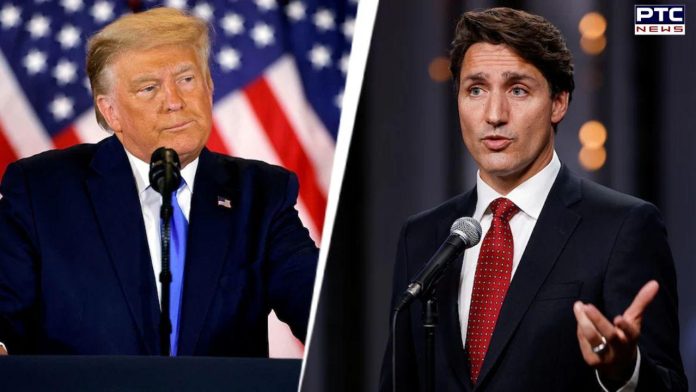Washington, D.C. – In a startling announcement, U.S. President-elect Donald Trump has proposed a merger between the United States and Canada following the unexpected resignation of Canadian Prime Minister Justin Trudeau. The former Canadian leader stepped down after nearly a decade in office, citing internal party divisions and mounting challenges, including rising inflation and a severe housing crisis. Trump suggested that a merger would foster economic and security advantages, eliminating tariffs, reducing taxes, and creating a unified North American power bloc.
Taking to his social media platform, Truth Social, Trump stated, “With Justin Trudeau stepping down, it’s time to consider a merger between the United States and Canada. No tariffs, lower taxes, and increased security. Together, what a great nation it would be.” This is not the first time Trump has made such a suggestion; during a past meeting with Trudeau in Florida, he humorously proposed Canada becoming the 51st state of the U.S., to which Trudeau had responded in jest. However, this new proposal comes at a pivotal time of political transition in Canada.
Trudeau’s resignation has opened the door to debates about Canada’s political and economic future, especially as the Liberal Party prepares to elect a new leader by March 24. The party’s next leader will inherit significant challenges, from addressing inflation to resolving the country’s housing crisis. Against this backdrop, Trump’s proposal has added a new dimension to discussions about Canada’s path forward.
Reactions to the proposal have been mixed. In Canada, many see the suggestion as a challenge to the nation’s sovereignty and cultural identity. Political analyst Sarah Thompson remarked, “The idea of merging with the U.S. is not just impractical; it also undermines the essence of what Canada stands for—its independence and unique identity.” On the other hand, Trump’s supporters in the United States have praised the proposal as a strategic move that could create an economic powerhouse, merging the resources and industries of both countries.
Critics, however, warn that the logistical, political, and cultural complexities of such a merger would be overwhelming. A significant portion of Canadians remains skeptical, questioning the benefits of a union that could dilute their national character and autonomy. Furthermore, experts argue that such a proposition, even if intended seriously, would require years of negotiation and legislative approval from both countries, making it an unlikely reality in the near future.
Trump’s suggestion has nonetheless sparked discussions on both sides of the border about the potential for deeper economic and political integration. While many see the idea as far-fetched, it has drawn attention to the intricate and often interdependent relationship between the two neighboring nations. Whether this proposal is a serious policy idea or simply a provocative statement, it has undoubtedly reignited debates about the future of U.S.-Canada relations in a post-Trudeau era.
BY – NIKITA




